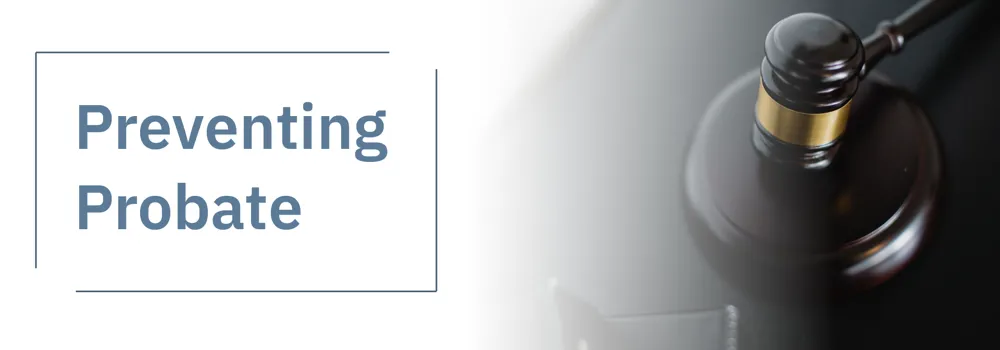Group legal insurance plans are one of the fastest growing employer benefits.

Preventing Probate
Preventing Probate
Navigating the complex and costly process of probate court adds unnecessary strain to the already-trying process of grieving the loss of a loved one. The legal procedure can be avoided, however, if certain documents are put into place before one passes. Before we dive into the best practices for avoiding probate, let’s define the term.
Probate is the legal process of analyzing, reviewing, and transferring the assets of a deceased person’s estate. Probate is either performed by an executor, as assigned in the decedent’s will, or by officials in probate court when the decedent passes intestate, or without a will. While the former is a relatively painless experience for beneficiaries of an estate, the latter is what we encourage families to avoid. Here’s how:
Write a will
Not having a will is one of the most common legal mistakes noted by attorneys. Dying intestate can cost living relatives thousands of dollars in legal fees related to the probate process, and can greatly diminish the decedent’s assets by means of the court assuming them to pay outstanding debts.
Having a will ensures that one’s estate plan avoids unnecessary court proceedings and that the distribution of assets to beneficiaries can be handled by the executor.
Share your property
There are several ways to arrange ownership of your property to avoid probate. You can transfer your property, or properties, while you’re still alive, or establish a form of joint ownership. Options for the latter include joint tenancy with rights of survivorship or tenancy by the entireties.
Learn more about real estate terms here.
Include a Transfer-On-Death Clause
Stipulations for TOD beneficiary designations vary by state, but can be used for real estate, securities, and cars.
Consider a Revocable Living Trust
Unlike a standard will, a revocable living trust offers certain protections (designed by you) throughout your life and after death. A revocable living trust also includes directions for when and if you are to become mentally incapacitated.
Learn more about the ways Legal Resources can assist with Wills and Estate Plans, Elder Law Matters, protecting retirement accounts, and more.





